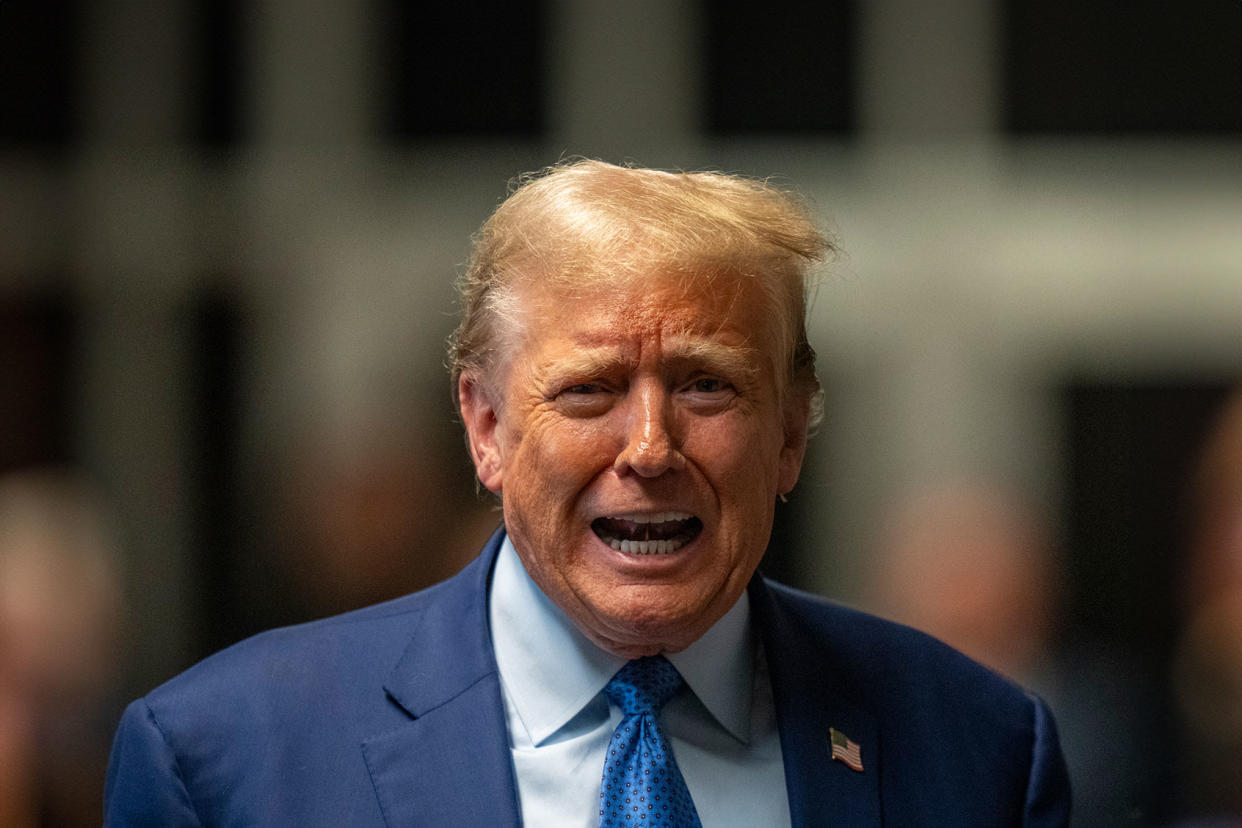Trump feared that "a lot of women" would come out with stories about him, Michael Cohen testifies

- Oops!Something went wrong.Please try again later.
- Oops!Something went wrong.Please try again later.
Before Donald Trump announced he was running for president in 2016, he turned to his former fixer, Michael Cohen, and told him to get ready for a slew of damaging claims that could be made about him, according to Monday's testimony in his Manhattan hush money trial.
"You know that when this comes out, meaning the announcement, just be prepared — there's going to be a lot of women coming forward," Trump said, according to Cohen.
Trump announced his first run for the White House in June 2015. Two months later, he and Cohen met with David Pecker, former publisher of the National Enquirer, where they hammered out a deal to "catch and kill" negative stories before they came out; the tabloid would also begin running negative stories about Trump's rivals.
"What was discussed was the power of the National Enquirer being at the cash register of so many supermarkets and bodegas," Cohen said. The publication would go on to run hit pieces on Trump's Republican rivals, including Ben Carson, Marco Rubio and Ted Cruz.
But the core of the arrangement was making sure nothing negative about Trump made it to print, there or anywhere else.
In June 2016, Cohen testified that he received a call from Pecker and one of his underlings about Karen McDougal, a Playboy model who was claiming she had an affair with Trump.
After receiving the call about McDougal, Cohen said he went to Trump, believing the story was "significant" and could harm his 2016 campaign, NBC News reported. Trump's response when asked if he knew McDougal, according to Cohen, was: "She's really beautiful."
"I said, 'Okay, but there's a story that's right now being shopped,'" Cohen testified.
The National Enquirer went on to pay McDougal $150,000 for the rights to her story, which it never published. Prosecutors argue that shows Trump paid the money because he was worried about the impact on his campaign — something he would do again months later with Stormy Daniels, allegedly falsifying business records to make sure the payment was not disclosed.

